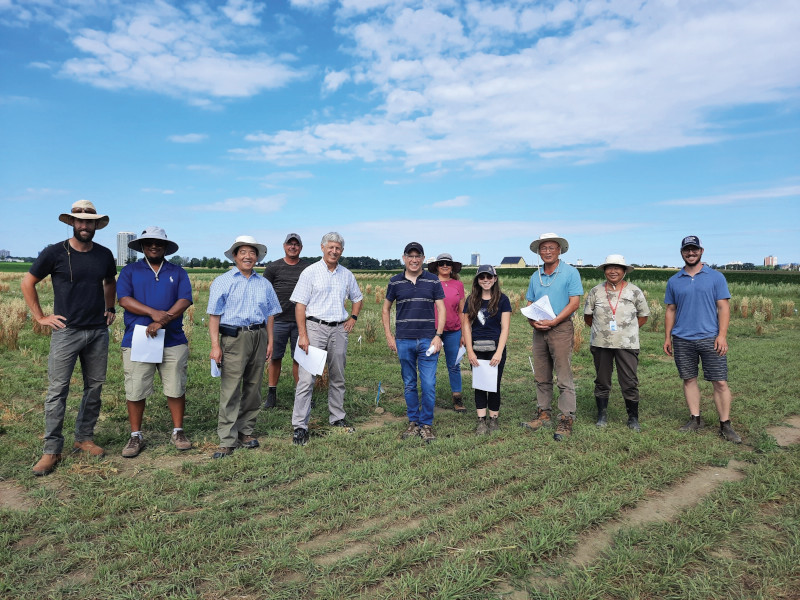
Big things are happening in barley research.
In an interview this week with Gina Feist, executive director of the Brewing and Malt Barley Research Institute (BMBRI), she shared insights into her professional journey and the exciting developments within the barley industry, including the first-ever agronomy program dedicated specifically to barley, launched this week in Saskatoon, Sask. at the 2024 Barley Symposium.
Feist’s career spans decades, beginning with crop research in flax and canola before transitioning into business development and intellectual property management. Her tenure at Western Grains Research Foundation paved the way for her current role at BMBRI.
Motivated by a desire to delve into the intricacies of barley, she found fulfillment in the collaborative nature of the industry. As executive director of BMBRI, her responsibilities include maintaining the quality and quantity of malting barley through research investments and facilitating collaborative trials with members.
With the announcement of GrowBarley, a groundbreaking agronomy program, Canada’s barley sector is taking a big step forward. This initiative, spearheaded by BMBRI and the Western Canadian Barley Commissions, promises to revolutionize barley research and development.
She’s thrilled about this development in research funding. The commitment of $1.5 million from the western Canadian barley commissions, along with support from the BMBRI, for a seven-year program is truly remarkable, she says.
“Such long-term commitments are rare in our industry, and they provide much-needed stability and support for impactful research initiatives,” she says.
What’s even more exciting is that AAFC Lacombe research scientist Hiroshi Kubota will collaborate closely with the steering committee, ensuring that his research is not only relevant but also swiftly adopted by producers and end-users.
“This level of collaboration and long-term investment presents a unique opportunity that is seldom seen in our field.”
However, challenges persist, notably in maintaining barley as a profitable crop amidst competition from wheat and canola. Extreme weather conditions also pose a threat, underscoring the importance of ongoing research efforts, she adds.
Looking ahead, Feist envisions a future driven by innovation, with advancements in genomics, microbiome research, and precision agriculture poised to transform the industry.
As we concluded our conversation, Gina reflected on the recent Canadian Barley Symposium, highlighting the value of knowledge exchange and networking within the industry.












